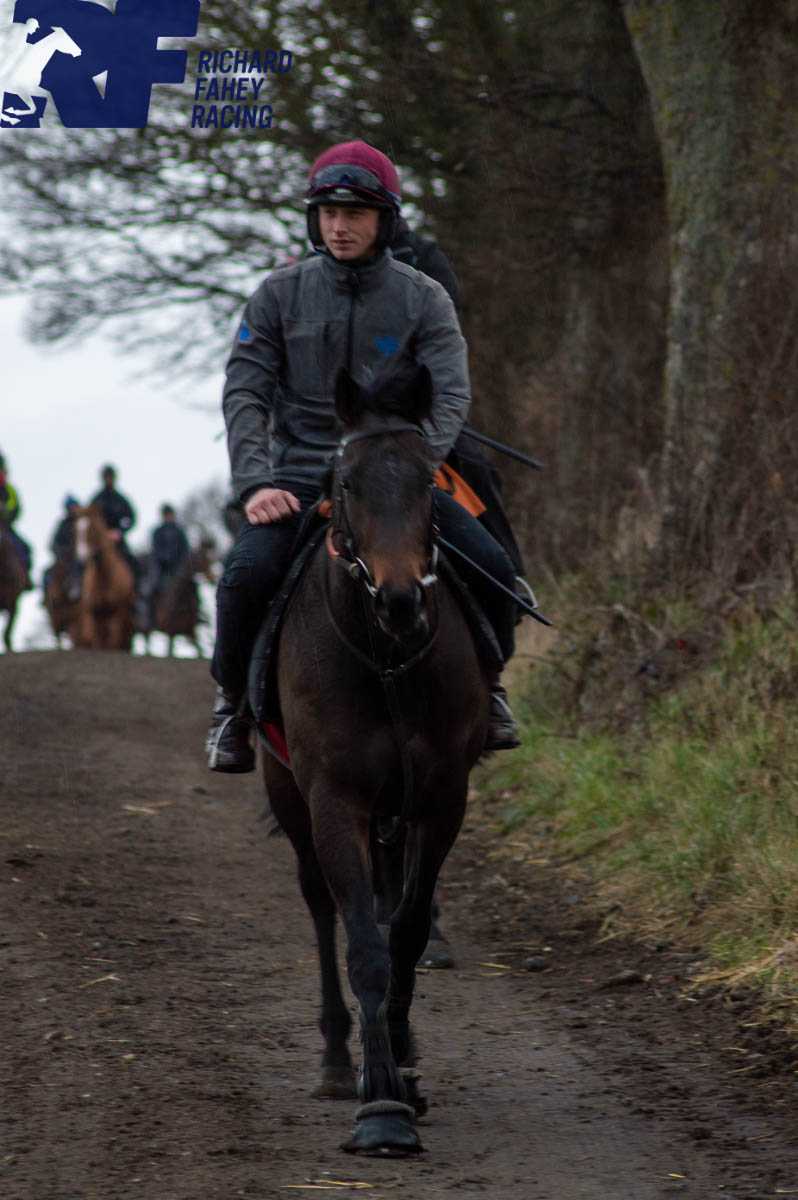With Perfect Power being primed the Guineas after success in the Greenham, we sat down with his regular rider to learn a little more about the man behind the reins.
Where does your will to do this job come from? Is it interest in racing, or the thrill of riding itself?
Both really – everything sort of fell into place for me. I grew up around horses from a very young age. My mum always had horses and ex-racers about and I think I got my first pony when I was roughly ten years old. She was also a massive racing fan and so was my uncle. On a Saturday I was always watching the racing and following horses from race to race. Then the older I got, the more seriously I thought about the game. I think I knew, from around the age of twelve/thirteen, that racing was where I was headed. At that point I did, to a certain extent, give up on school, because all I wanted be was a jockey. It didn’t happen though – I was too tall and heavy!
Where have you worked besides Musley Bank?
I worked at Sue Smith’s on the odd weekend when I was in my early teens. Just mucking out, helping out, trying to learn as much as I could. When I was 16 I then went to the British Racing School in Newmarket for their nine-week residential course before rejoining Sue’s for the following season. It was then Musley Bank after that. I’d already done a couple of weeks of work experience at the yard, so it was a great to come back and get stuck in.
After three or four years here I decided to move on to Kim Bailey’s to try and work towards a conditional license. They were very good to me down there, but after about eight months I slowly began to realise, with my weight as it was,that it wasn’t a viable option going forwards. I was unfortunately touching 11st when I was nineteen. So I had to have a reality-check, spoke to my family and friends and came to a decision that returning to Musley Bank would be the best thing to do. I haven’t looked back since.
How did you go about developing yourself into the rider you are today?
By listening to people! Every day you can learn something different. There’s people out there with a far greater depth of knowledge than I have – people like John Murphy, Alan (Jock) Hill, John Carr (all senior riders at Musley Bank). There is always someone to learn off, someone to give you advice. When I first came to Musley Bank I wasn’t a stand-out rider – I was very average. However, I knew that this was what I was going to be doing for a very long time. Therefore,I got my head down, worked and tried to get better. You should want to be riding nice horses – that’s what you’re here to do and that’s where the enjoyment comes from. Luckily, I’ve been able to get up on a few nice ones.
There is obviously a good amount of pressure involved in riding a Group 1 horse every day. How you approach and manage that pressure?
I honestly don’t really feel the pressure, it’s more a feeling of responsibility to keep him right. I have to make sure he goes out every day and that the job is done properly. That’s it. You want to do the best for the horse and of course you want him to deliver for the whole yard – but, like I say, I don’t feel an immense amount of pressure riding him. If I did and was tense riding him, then that wouldn’t do anyone any good. Richard and Robin help with that because they are very relaxed in their work. They put a lot of trust in people like me to get the job done. Trust in the horse, trust in your own abilities and‘get on with it’ is the way I tackle it.
If you had to highlight a key strength of Perfect Power’s, what would it be?
His laid-back approach to everything. I think you see it in a lot of good horses, where they’re laid-back, switched off and can take things in their stride. Since we’ve had him he has alwayshad that quality. He does what you want him to do, but he wouldn’t go far beyond that! In his work and everything, he is so relaxed. I do think you need that in a good horse though – you don’t want them over the top at every turn, stressing, worrying and keen up the gallops. He takes his races well, as we’ve seen this week where he’s come out from the Greenham bouncing and happy. The bottom line is that he doesn’t seem one to overthink things. From our point of view, it’s a very good position to be in.
The big question…do you think he’ll stay the Guineas trip?
It is tricky to say. I’m optimistic that he will get a mile, but at the same time you’re going into a Group 1 Classic, against some of the best soon-to-be milers/mile ¼ horses in Europe. It will be a true test for him, with no hiding place, but he did nothing wrong at Newbury over 7 furlongs. They went a hard gallop and he picked up well when Soumillon asked him toput the race to bed. He’s earned his place at the top table and it’s not very often that this sort of chance comes around, so we’ll see.
Finally, you’ve been to plenty of different international tracks with our horses – most recently with Fev Rover for her raid on Bahrain. From what you’ve seen, is there something in particular British racing can learn from these places?
It’s a fairly obvious one, but prize money. You go abroad and the prize money in comparison to what we have here is just unbelievable. It’s something that really needs to be looked into fast, or else racing in this country is in serious trouble. A system to direct more of betting’s turnover into prize money, along the lines of France’s Pari Mutuel, is how I’d look to solve it. Money is the only way, particularly in this day and age, that racing will attract new owners and staff to the sport. And we need both of them to keep the show on the road.








